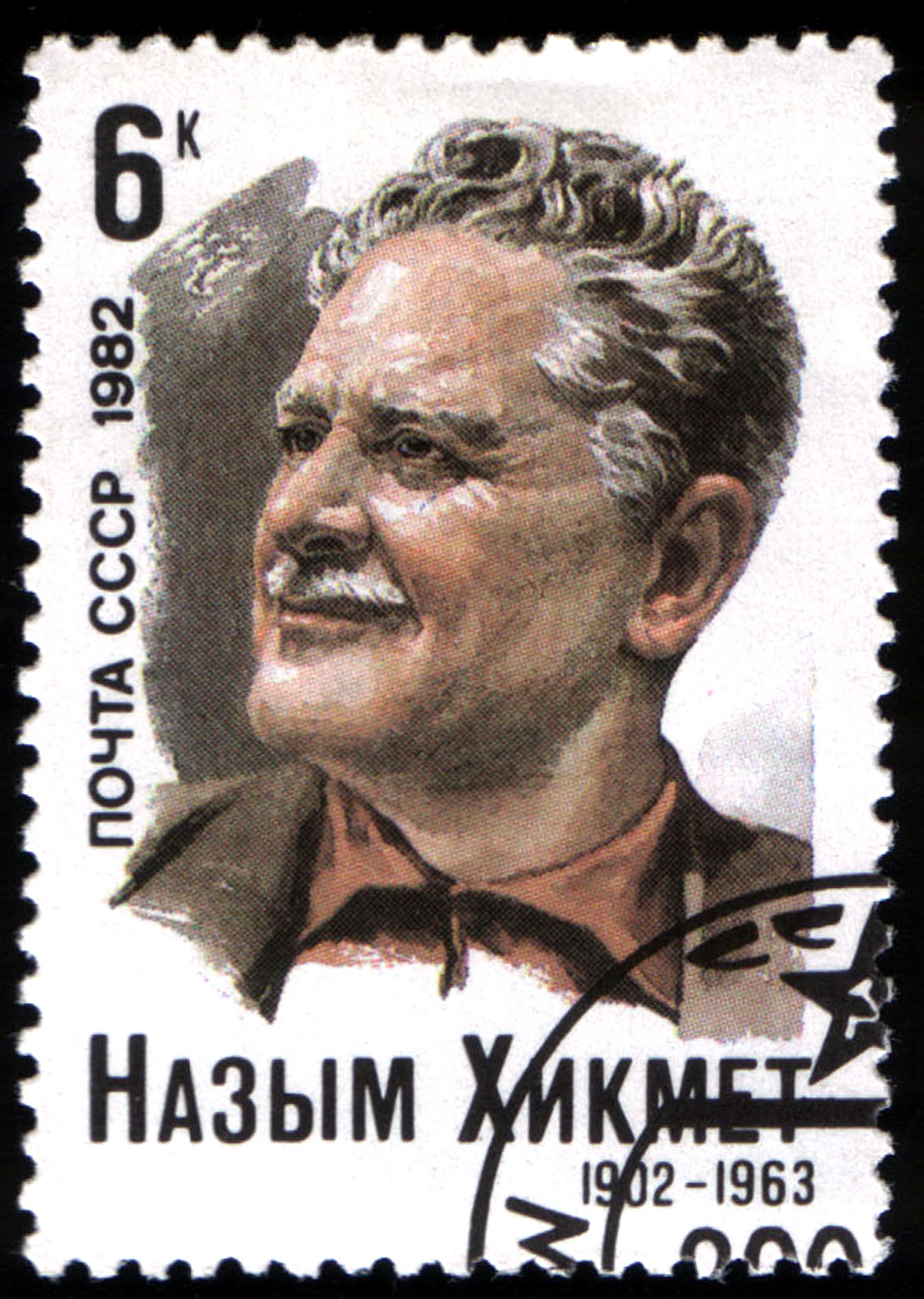Nazım Hikmet: Frases em inglês
From Because of You (29 August 1960)
From Welcome (10 September 1961)
From Today is Sunday
“At eighteen you sleep without memories.”
From Human Landscapes from My Country, Book Two, Section VII
“You may proclaim that one must live”
From A Sad State Of Freedom
Contexto: You waste the attention of your eyes,
the glittering labour of your hands,
and knead the dough enough for dozens of loaves
of which you'll taste not a morsel;
you are free to slave for others—
you are free to make the rich richer.
The moment you're born
they plant around you
mills that grind lies
lies to last you a lifetime.
You keep thinking in your great freedom
a finger on your temple
free to have a free conscience.
Your head bent as if half-cut from the nape,
your arms long, hanging,
your saunter about in your great freedom:
you're free
with the freedom of being unemployed.
You love your country
as the nearest, most precious thing to you.
But one day, for example,
they may endorse it over to America,
and you, too, with your great freedom—
you have the freedom to become an air-base.
You may proclaim that one must live
not as a tool, a number or a link
but as a human being—
then at once they handcuff your wrists.
You are free to be arrested, imprisoned
and even hanged.
There's neither an iron, wooden
nor a tulle curtain
in your life;
there's no need to choose freedom:
you are free.
But this kind of freedom
is a sad affair under the stars.
“You are free to be arrested, imprisoned”
From A Sad State Of Freedom
Contexto: You waste the attention of your eyes,
the glittering labour of your hands,
and knead the dough enough for dozens of loaves
of which you'll taste not a morsel;
you are free to slave for others—
you are free to make the rich richer.
The moment you're born
they plant around you
mills that grind lies
lies to last you a lifetime.
You keep thinking in your great freedom
a finger on your temple
free to have a free conscience.
Your head bent as if half-cut from the nape,
your arms long, hanging,
your saunter about in your great freedom:
you're free
with the freedom of being unemployed.
You love your country
as the nearest, most precious thing to you.
But one day, for example,
they may endorse it over to America,
and you, too, with your great freedom—
you have the freedom to become an air-base.
You may proclaim that one must live
not as a tool, a number or a link
but as a human being—
then at once they handcuff your wrists.
You are free to be arrested, imprisoned
and even hanged.
There's neither an iron, wooden
nor a tulle curtain
in your life;
there's no need to choose freedom:
you are free.
But this kind of freedom
is a sad affair under the stars.
“My country or the stars
Or my youth, what's farthest?”
From In the Snowy Night Woods (10 March 1956)
From On the Twentieth Century (12 November 1941)
“At eighteen you don't think about memories,
you tell them.”
From Human Landscapes from My Country, Book Two, Section VII
From A Spring Piece Left In The Middle
From Human Landscapes from My Country, Book Two, Section VII
From Human Landscapes from My Country, Book Two, Section VII
From In the Snowy Night Woods (10 March 1956)
